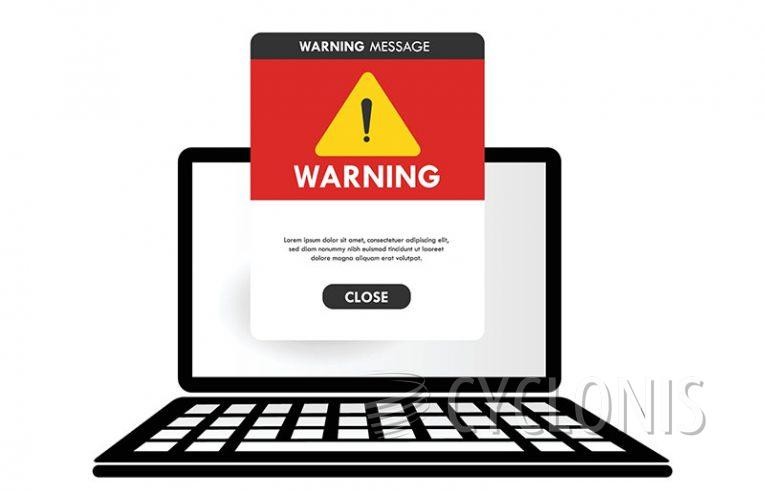McAfee - Your PC is infected with 5 viruses! Pop-Up Scam

The "McAfee - Your PC is infected with 5 viruses!" pop-up is a common online scam designed to deceive users into believing their devices are compromised. The goal of this fraudulent message is to convince individuals to install untrustworthy software or purchase unnecessary subscriptions. While the pop-up uses McAfee branding, it is important to note that it is not affiliated with McAfee Corp. or its legitimate antivirus products.
Table of Contents
How the Scam Works
This particular scam usually appears as a pop-up window when users are browsing the internet. It claims that the user's device is infected with five viruses and that their McAfee subscription is outdated, urging them to renew it immediately. These tactics are aimed at creating a sense of urgency and fear, encouraging users to take quick action to "protect" their systems.
The warning is false, and there is no virus on the user's computer. Instead, the scam's primary purpose is to lure individuals into downloading fake antivirus software or subscribing to illegitimate services. In reality, these downloads can often contain Potentially Unwanted Programs (PUPs) that can disrupt the device's performance and compromise personal privacy.
Here's what the pop-up says:
McAfee
Your PC is infected with 5 viruses!
ACTION REQUIRED!
Your McAfee Subscription Has Expired!
Renew now to keep your pc protected.
If your PC is unprotected, it is at risk for viruses and other malware.
Proceed…
Entry Points for Scams
Such pop-ups like "McAfee - Your PC is infected with 5 viruses!" are often encountered accidentally. Users may stumble upon them by mistyping website URLs, clicking on ads from rogue pages, or being redirected by sites that use deceptive advertising practices. In some cases, the scam pop-up can be triggered by pre-existing potentially unwanted programs (PUPs) that have been installed on the device.
PUPs are commonly installed without users' awareness, often bundled with legitimate software. Once installed, these programs can generate intrusive ads, redirect browsing, and expose users to scams like the fake McAfee virus warning. These pop-ups are designed to look convincing, leveraging well-known brand names like McAfee to gain trust.
The Danger of Following Through
If a user falls for the scam and attempts to resolve the supposed virus infection, they might be prompted to renew their McAfee subscription. In this case, the scammers will direct them to pay for fake software or services. This can result in direct financial loss and exposure of sensitive personal information such as credit card details.
Some variations of the scam may even push users to download software that appears legitimate but is, in fact, harmful. These downloads can include adware, browser hijackers, or other PUPs. While these types of software are often not as harmful as more dangerous threats, they can still degrade device performance, collect private data, and create a host of unwanted issues for the user.
The Risks of Personal and Financial Data Exposure
In addition to the financial risk of paying for bogus software, these scams pose a serious privacy threat. When users provide their personal or financial information in response to the scam, this data may be sold or exploited by cybercriminals. Users may then face identity theft, unauthorized transactions, and other damaging consequences.
It's also worth mentioning that although PUPs are more commonly associated with these scams, in some instances, the scam may distribute more harmful threats such as ransomware or trojans. These can result in much more significant damage to a user's device and data.
How to Protect Yourself from These Scams
The first step in protecting yourself from the "McAfee - Your PC is infected with 5 viruses!" scam and similar schemes is to be vigilant. If you encounter a pop-up warning about viruses on your system, do not click on any links or follow the instructions provided. Close the browser window immediately and avoid interacting with any elements on the pop-up page.
Scams like this often proliferate through PUPs, which are spread using a technique called bundling. Bundling involves packaging unwanted software with legitimate programs. When users download software from unofficial sources, they may unknowingly install PUPs alongside the software they intend to download.
Preventing PUP Installation
To avoid PUPs and online scams, it's crucial to be careful when downloading software. Always use official, verified sources for your downloads. Peer-to-peer sharing networks, unofficial websites, and free file-hosting platforms are often breeding grounds for bundled programs that may contain PUPs.
When installing new software, opt for the "Custom" or "Advanced" settings instead of the default options. These settings allow you to see if any additional programs are being installed alongside the main software. By carefully reviewing the terms and conditions and selecting only the components you need, you can avoid installing unwanted programs.
Being Careful Online
Another key aspect of protection is safe browsing. Intrusive advertisements can often appear legitimate but redirect users to questionable sites, including those promoting scams, adult content, or gambling. It's important to avoid clicking on suspicious ads, especially those that promise unlikely rewards or services.
Additionally, regularly updating your browser and security software can help block access to deceptive websites and prevent pop-up scams from appearing in the first place.
Final Thoughts
The "McAfee - Your PC is infected with 5 viruses!" pop-up is just one example of the many online scams that seek to exploit users' fear and lack of awareness. By staying informed about how these scams operate and being cautious when downloading software or browsing the web, you can avoid falling victim to these deceptive schemes. Always remember that legitimate antivirus software companies will not contact you through unexpected pop-up messages, and any warnings about viruses on your system should be treated with skepticism unless confirmed by reliable security software.








